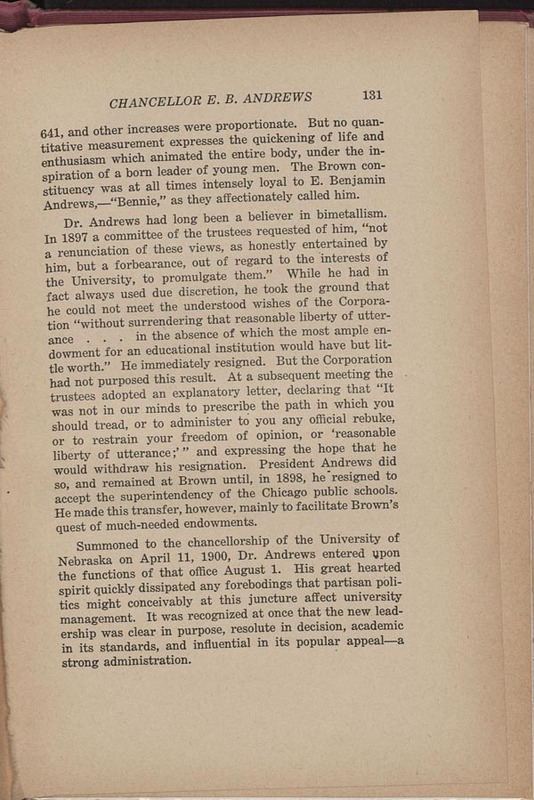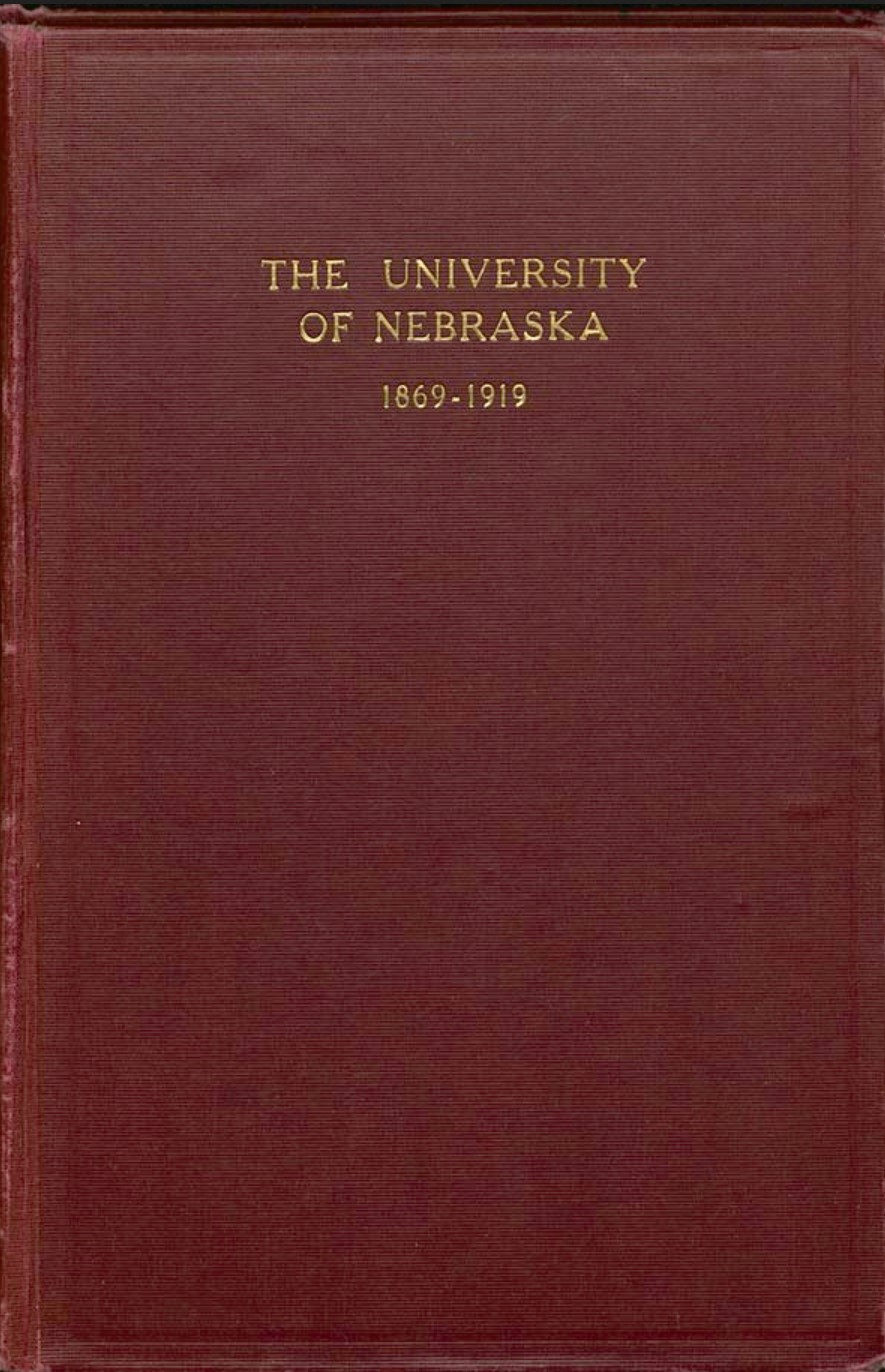141
Item
-
Title
-
141
-
Description
-
Semi-Centennial Anniversary Book: The University of Nebraska, 1869-1919
-
Transcription
-
641, and other increases were proportionate. But no quantitative measurement expresses the quickening of life and enthusiasm which animated the entire body, under the inspiration of a born leader of young men. The Brown constituency was at all times intensely loyal to E. Benjamin Andrews,—"Bennie," as they affectionately called him.
Dr. Andrews had long been a believer in bimetallism. In 1897 a committee of the trustees requested of him, "not a renunciation of these views, as honestly entertained by him, but a forbearance, out of regard to the interests of the University, to promulgate them." While he had in fact always used due discretion, he took the ground that he could not meet the understood wishes of the Corporation "without surrendering that reasonable liberty of utterance . . . in the absence of which the most ample endowment for an educational institution would have but little worth." He immediately resigned. But the Corporation had not purposed this result. At a subsequent meeting the trustees adopted an explanatory letter, declaring that "It was not in our minds to prescribe the path in which you should tread, or to administer to you any official rebuke, or to restrain your freedom of opinion or 'reasonable liberty of utterance;'" and expressing the hope that he would withdraw his resignation. President Andrews did so, and remained at Brown until, in 1898, he resigned to accept the superintendency of the Chicago public schools. He made this transfer, however, mainly to facilitate Brown's, quest of much-needed endowments.
Summoned to the chancellorship of the University of Nebraska on April 11, 1900, Dr. Andrews entered upon the functions of that office August 1. His great hearted spirit quickly dissipated any forebodings that partisan politics might conceivably at this juncture affect university management. It was recognized at once that the new leadership was clear in purpose, resolute in decision, academic in its standards, and influential in its popular appeal—a strong administration.
-
Rights
-
To inquire about usage, please contact Archives & Special Collections, University of Nebraska-Lincoln Libraries. These images are for educational use only. Not all images are available for publication.



